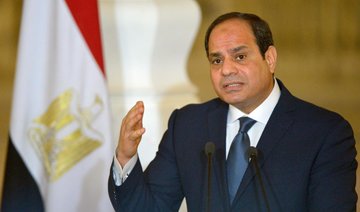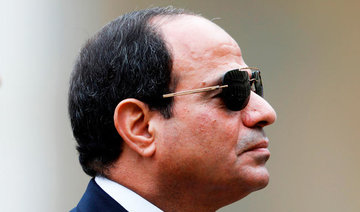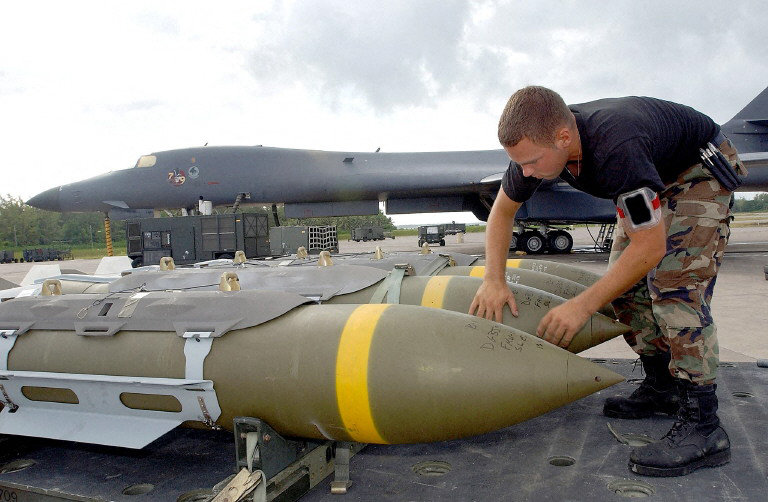CAIRO: Egyptian presidential hopeful and rights lawyer Khaled Ali on Wednesday quit the race, becoming the latest would-be candidate who either bowed out or was forced to abandon a challenge to President Abdel-Fattah el-Sissi in the March election.
Ali was the last serious potential challenger to el-Sissi after a string of other hopefuls quit the race.
His decision came just hours after el-Sissi submitted his nomination documents, a day after another potentially serious challenger — a retired general and former chief of staff — was arrested by the military on a slate of charges, including forgery and inciting against the military.
Ali's move raises the specter that the March 26-28 vote would be reduced to a little more than a one-candidate referendum, not different from those which produced Egyptian presidents during decades of authoritarian rule in the past.
Addressing a news conference at his campaign's headquarters in downtown Cairo, Ali cited a "climate" not conducive to campaigning and claimed that "many" of his campaign workers have been detained.
He also blamed security agencies for harassing supporters seeking to obtain "recommendations" for his nomination at notary offices across the country.
Ali's candidacy was also at risk because he was convicted in September of making an obscene hand gesture in public. If that ruling is held on appeal, he would have been ineligible to run. The next appeal hearing is due in early March.
El-Sissi is virtually certain to win a second, four-year term in the election.
Beside Ali, two would-be challengers have withdrawn from the race and another two have been arrested, including the former chief of staff, Gen. Sami Annan. But the president's supporters have been actively gathering signatures from voters in an attempt to show he has popular support.
Under the constitution, any potential candidate must secure 25,000 "recommendations" from voters or the support of 20 lawmakers to be eligible to run for Egypt's top job.
El-Sissi already has the support of more than 500 of parliament's 596 lawmakers. But on Wednesday his official Facebook page posted images of workers unloading boxes of recommendations from a van, each bearing the president's image and the slogan "Long live Egypt!"
On Tuesday, the military arrested Annan over a string of serious allegations, all but ending his hopes of running in the election and ensuring that el-Sissi, himself a former general, will not face off against another member of the country's powerful military establishment.
Amnesty International said the arrest of Annan amounted to an attack on rights to public participation and freedom of expression.
"It is clear that the Egyptian authorities are hell-bent on arresting and harassing anyone who stands against President el-Sissi," said Najia Bounaim, Amnesty's North Africa Campaigns Director. "This is consistent with the Egyptian government's ongoing efforts to crush dissent and consolidate power by attacking civil society, activists and human rights defenders in the country."
Two other presidential hopefuls have earlier withdrawn.
Former prime minister and air force Gen. Ahmed Shafiq, who finished a close second in Egypt's first free election in 2012, said he did not think he was the "ideal" man to lead the nation after days of harsh criticism by pro-el-Sissi media.
Another would-be candidate was former lawmaker Mohammed Anwar Sadat, the nephew of the Egyptian leader who was assassinated in 1981. He said the country's political "climate" was not conducive to campaigning and because he feared for the safety of his supporters.
Another hopeful, Army Col. Ahmed Konsowa, was court martialed and sentenced to six years in prison for breaching military regulations prohibiting political activism.
El-Sissi led the 2013 military overthrow of Egypt's first freely elected president, Mohammed Morsi, whose year in power proved divisive. The government has since waged a wide-scale crackdown on dissent, silencing nearly all its critics.
Except for Morsi and interim president Adly Mansour, who succeeded him in 2013, all of Egypt's presidents since the establishment of the republic in the early 1950s have come from the military, and the security apparatus is believed to wield great power behind the scenes.






























